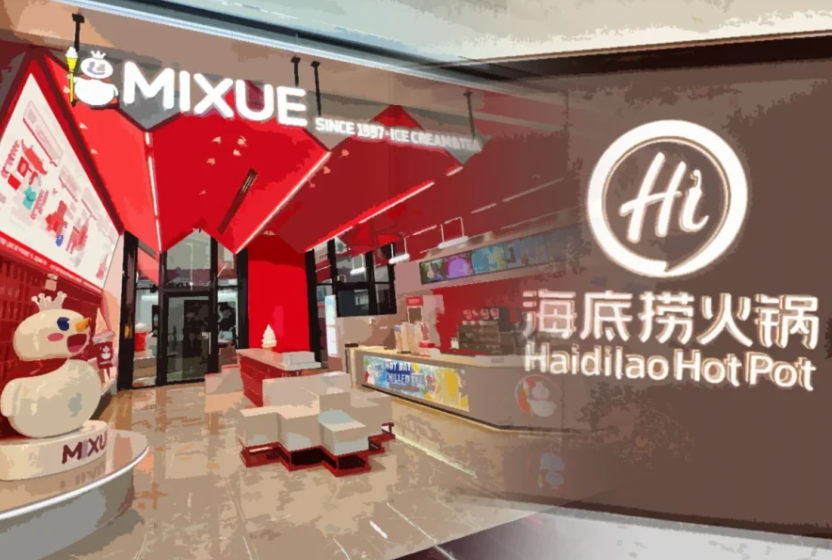
Low-cost “Chinese” food and beverage chains are expanding their business across ASEAN, setting up thousands of branches, causing serious concerns that they will affect local industries.
October 17, 2567, Nikkei Asia reported that inexpensive Chinese food and beverage chains such as Mixue and Haidilao Expanding operations in Southeast Asia By attracting young consumers with cheap products amid concerns about the impact on local businesses in ASEAN.
In Vietnam, Mixue has become a popular drink shop among high school students. They often come to buy after school because the price is cheap. By an employee of a Mixue branch in Hanoi said This branch sells about 500 drinks a day, and on busy days, sales increase to more than 1,000. The most popular drink is the lemon tea with aloe vera, priced at 17,000 dong (68 cents). Mixue drinks are generally 30-50% cheaper than drinks from local chains such as ToCoToCo.
Mixue, which has more than 36,000 stores worldwide, entered Vietnam in 2561, initially opening stores in student-heavy cities such as Hanoi and Ho Chi Minh City, using a franchise model, resulting in more than 1,000 stores across Vietnam by 2566.
In Indonesia, Mixue launched its business in 2563 and has expanded rapidly, with over 2,400 branches nationwide. In Malaysia, Mixue has over 150 branches, and is growing in other ASEAN countries, including Thailand and the Philippines.
The report said a key factor in Mixue’s ability to maintain its low prices is the mass production of its raw materials in China. An employee in Thailand said ingredients such as tea and creamer were produced by affiliates in China and then exported to overseas outlets.
In addition, Other Chinese coffee chains are also expanding in Southeast Asia in similar fashion. โดย Cotti Coffee It opened a branch in Thailand in December 2566, selling coffee for 45 baht (1.35 US dollars) per cup, which is cheaper than the country's largest coffee chain, Cafe Amazon, which sells coffee for 65 baht.
Since its founding in 2565, Cotti Coffee has grown rapidly to around 7,000 stores in China, further intensifying competition in the price war.
On the other hand, Haidilao, a Chinese hotpot chain, is also growing in the ASEAN region. With 70 branches across Southeast Asia by the end of December 2566, including in Thailand, prices start at around 370 baht and customers can enjoy the shop's signature free services while waiting in line, from snacks, ice cream to manicures.
The report said that Chinese food and beverage brands are facing deflationary pressure in the domestic market, forcing them to cut prices, with the domestic market expected to shrink further in the future due to the declining birth rate. These companies are therefore increasingly focusing on the growing Southeast Asian market.
As the Vietnamese newspaper reported, The ToCoToCo convenience store chain, founded in 2556, has suffered three consecutive years of losses until 3. This is partly due to competition from these low-priced Chinese brands, and despite efforts to improve its business strategy and expand its branches to around 700, it has failed to attract the majority of young consumers.
At the same time, there are concerns that these cheap Chinese brands could have a negative impact on local industries. Mr. Charoen Kaewsuksai, chairman of the Food and Beverage Industry Club of the Federation of Thai Industries, warned that the rapid expansion of cheap Chinese restaurant chains could damage local Thai restaurants.
There are also concerns across Southeast Asia that China is exporting a huge amount of cheap goods to the region, which is causing deflation, from food and beverages to electric cars, steel and other products.
Indonesia responded to the issue by raising tariffs on textile products and other goods in August, targeting imports from China.
Source: Money & Banking Online
Share: